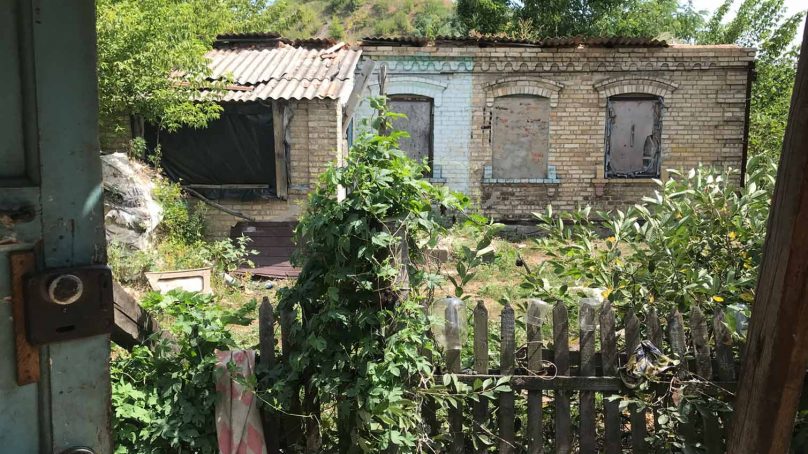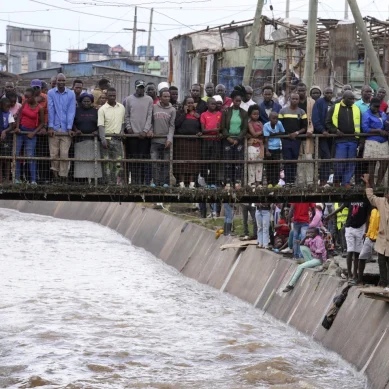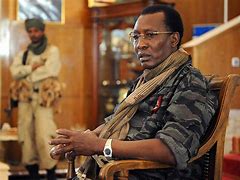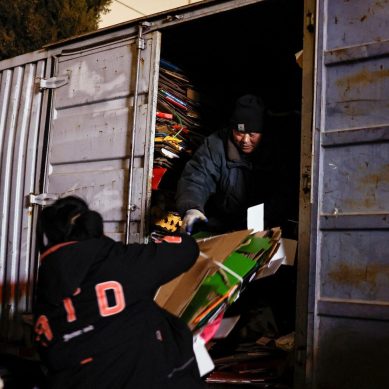
The last time I visited Lidiia – an 85-year-old woman who lived alone in Mariinka, a town along the ‘line of contact’ that has been largely reduced to rubble – was in early February 2022, a couple of weeks before the full-scale invasion.
The fighting around Mariinka was already intensifying, but Lidiia refused to move out of her house. “I want to die in my bed,” she said.
A volunteer from a local church told me Lidiia had nothing to eat and needed some food. I accompanied the volunteer as he brought her some bread and a fried chicken. We walked silently toward her house, right on the frontline, in between signs reading, “Stop! Landmines” and, “Stop, snipers are working”.
Despite the danger, volunteers from Mariinka would bring Lidiia food and medication almost every day. But that day, Lidiia wouldn’t let anyone enter her house. Her anxiety was already running high due to the mounting conflict, and she was afraid of being robbed.
Only a month later, I learned that she had been found dead amid the ruins of her house, which was destroyed in March. She was one of the first victims of the new war. She likely died in her own bed.
On the eve of the Russian invasion last year, people still didn’t want to believe a full-scale war was possible. I was in Kyiv sitting in a restaurant with a friend who had been displaced from the earlier conflict in the Donbas, eating pancakes with caramel. “Nothing can ever happen here,” she told me.
The next day, she fled Kyiv as Russian soldiers poured across Ukraine’s borders and missiles rained down – fleeing war in her country for the second time.
On the morning of February 24, I arrived in the eastern Ukrainian city of Kharkiv just in time to see the country plunge into chaos. In the city centre, there was a strange pre-war quiet – a calm before the storm – although heavy fighting on the outskirts of the city had already killed a 14-year-old child.
Some families were buying large amounts of food and water, while others were panicking and attempting to flee. When I checked into my hotel room, a cleaning lady told me, “You will see atrocities beyond anything you can imagine”, and told me to prepare for the worst.
I slept on the floor as far away from the window as I could, bracing for a violent attack that might come in the night. I awoke the next day to fighting unfolding around the city and hid in an underground car park near my hotel surrounded by mothers and toddlers screaming for help.
It looked like Kyiv was going to fall and a Russian puppet government would be installed. Many of us in the shelter thought we would never make it out alive.
I did make it out. But during multiple reporting trips over the course of the past year, I’ve seen the lives of many Ukrainians turn into hell. I’ve heard from people living close to the front lines whose stories I’ve been documenting for years. Some begged me for help while I interviewed them over the phone. Others have been reported missing or dead.
Vera, a 76-year-old woman from the city of Chasiv Yar in eastern Ukraine, lived without electricity throughout the summer and autumn, and witnessed heavy fighting. “I’m freezing and starving,” she told me, crying, by telephone this winter. She hadn’t been able to collect her pension and couldn’t buy food. “I have nothing to live for,” she said.
In 2014, the fighting only affected people living close to the line of contact. Today, it impacts all Ukrainians.
Last month, I met countless people displaced by the Russian aggression, some of whom had been victims of war crimes. A year after the invasion, power cuts are frequent, even far from the frontlines. People all over the country are suffering from hunger, poverty and the cold. Countless families have been divided as millions of refugees have escaped the country.
Numerous women and girls live in a state of anxiety, worrying about their loved ones who are in the army – or who may soon get drafted. But amidst all this suffering, destruction and deprivation, I have also seen small gestures of humanity – people showing courage, kindness and resilience. They form small points of light against the black backdrop of war.
People are eager to help each other, and this time the international community is paying attention. International NGOs are providing considerably more support than they did back in 2014, and local volunteers and organisations are distributing aid even in the most affected regions. Most importantly, the whole world is watching.
Despite the fear of Russia’s new offensive – not to mention the constant struggle of living in war-damaged houses with power cuts and under night-time bombardment – almost all the Ukrainians I met expressed an almost incomprehensible sense of optimism. “Everything will be okay,” they said.
- The New Humanitarian report / By Sara Cincurova / Freelance journalist who covers human rights











